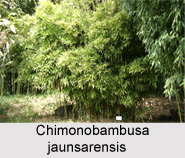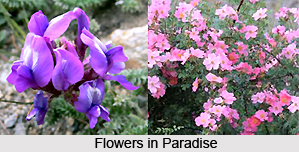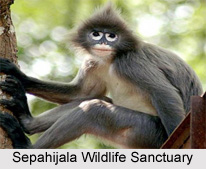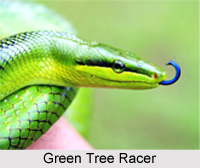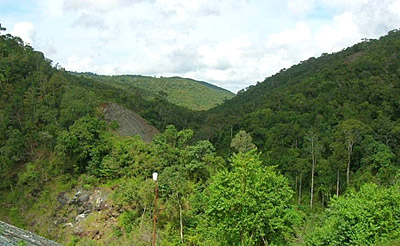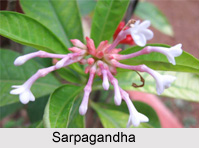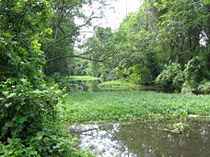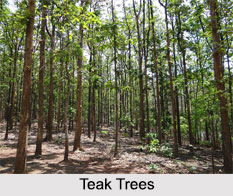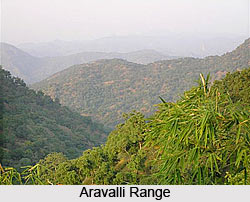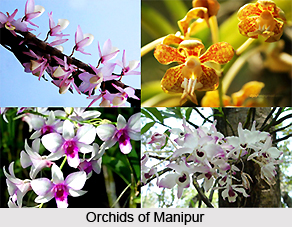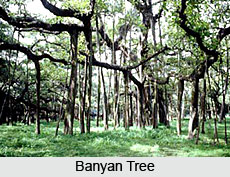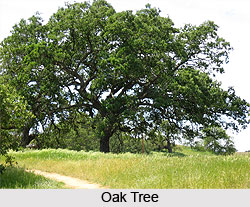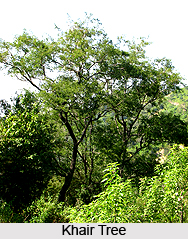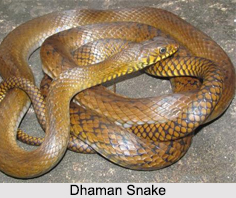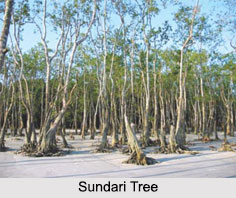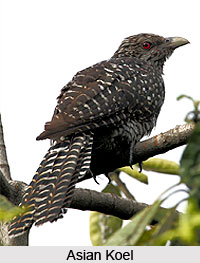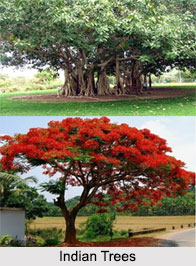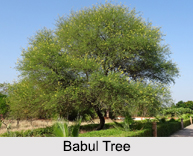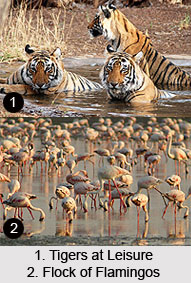 Kutch Desert Wildlife Sanctuary is a beautiful Indian wildlife reserve which is existent in the Great Rann of Kutch in the western Indian state of Gujarat and was officially proclaimed a sanctuary in February 1986. Kutch Desert Wildlife Sanctuary is said to be the biggest one in entire Gujarat, boasting of an area measuring 7506.22 square kilometres and is amongst the largest salt-water wetlands whose average water depth is about 0.5 to 1.5 metres. Various mammals and birds are present Kutch Desert Wildlife Sanctuary and its northern boundary is actually the global border between Pakistan and India. Therefore the Border Security Force or BSF always keeps a strict vigil throughout this part of the nation. Common visitors are not permitted to approach the Kutch Desert Wildlife Sanctuary, particularly in the area extending beyond the India Bridge, Kala Dungar or Black Hill at Khavda. However, this portion can be accessed with prior permission from the Border Security Force.
Kutch Desert Wildlife Sanctuary is a beautiful Indian wildlife reserve which is existent in the Great Rann of Kutch in the western Indian state of Gujarat and was officially proclaimed a sanctuary in February 1986. Kutch Desert Wildlife Sanctuary is said to be the biggest one in entire Gujarat, boasting of an area measuring 7506.22 square kilometres and is amongst the largest salt-water wetlands whose average water depth is about 0.5 to 1.5 metres. Various mammals and birds are present Kutch Desert Wildlife Sanctuary and its northern boundary is actually the global border between Pakistan and India. Therefore the Border Security Force or BSF always keeps a strict vigil throughout this part of the nation. Common visitors are not permitted to approach the Kutch Desert Wildlife Sanctuary, particularly in the area extending beyond the India Bridge, Kala Dungar or Black Hill at Khavda. However, this portion can be accessed with prior permission from the Border Security Force.
Flora of Kutch Desert Wildlife Sanctuary
Goro Dungar and Kala Dungar are the two different local hills of Kutch Desert Wildlife Sanctuary which are covered with numerable microhabitats. Several species of shrubs, grasses and other plants can be observed here. Scrubs including Gorad, Guggal, Kahri, Kerdo, Khijado, Lai, Kahri Jar, Bokhano, Thor, Hermo Baval and much more survive in this wildlife sanctuary.
Fauna of Kutch Desert Wildlife Sanctuary
Kutch Desert Wildlife Sanctuary is filled with innumerable wild animals comprising Wild Boar, Nilgai, Jackal, Chinkara, Hare, Hyena, Sambar, Porcupine, Indian Hedgehog, Indian Fox, Indian Civet, Spiny-Tailed Lizard, Mongoose, Bluebull, Wild Ass and others. Different birds consisting of Osprey, Crow, Spoonbill, Black Vulture, Sparrow, White-Backed Vulture, Stork, Shoveller, Pelican, Brahminy Duck, Indian Cormorant, Sandpiper, Pochard, Plover, Pintail, Spotbill are a few of the numerous species of birds present in this wildlife reserve. The large quantity of flamingos dwelling in this region has been responsible for the naming of this sanctuary as `Flamingo City`. Apart from Flamingo, Avocet and Rosy Pelican are the other kinds of birds which are noticed in this sanctuary. Thousands of Flamingos build their nests, in the Kutch Desert Wildlife Sanctuary for mating.
